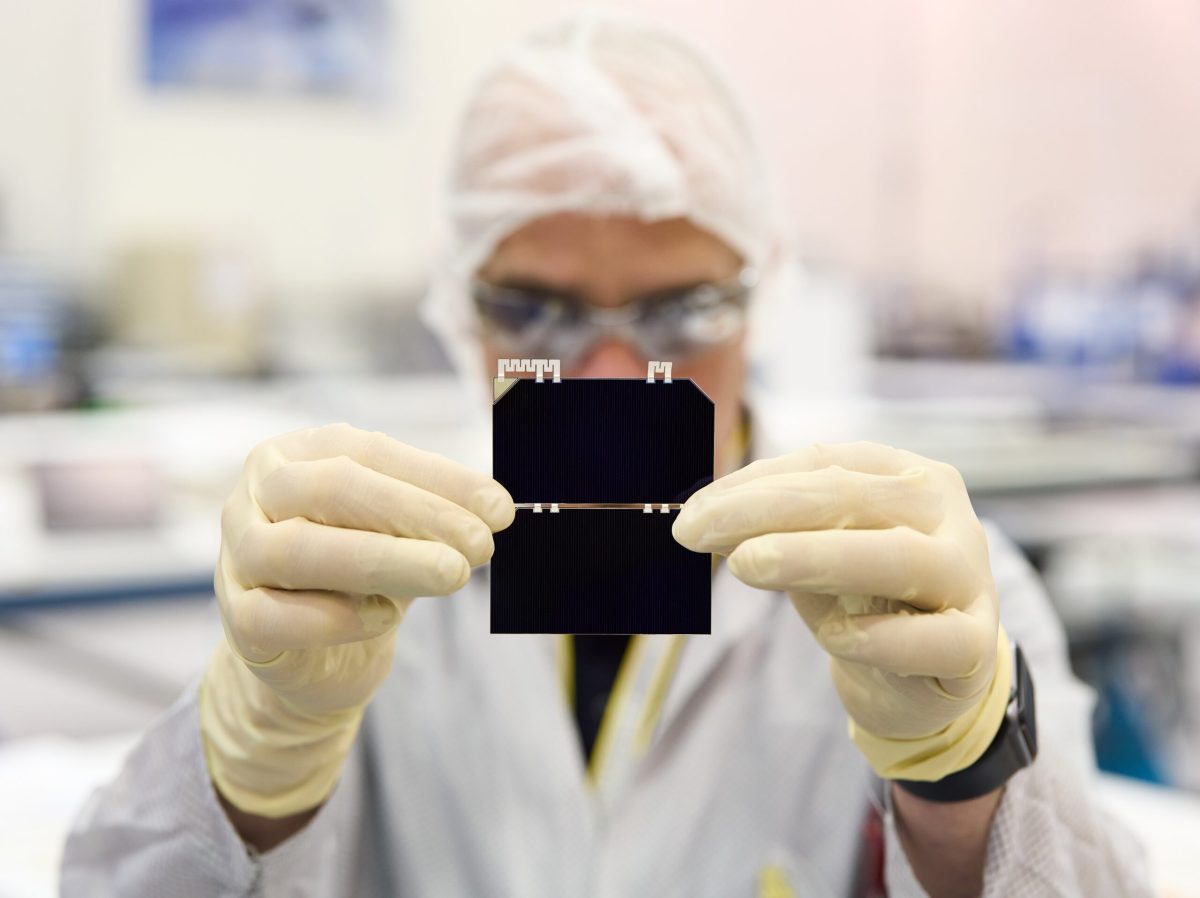WASHINGTON — Rocket Lab has lined up nearly $50 million in federal and state funding that will help the company expand a New Mexico factory where its produces space-grade solar cells.
The company announced June 11 that it had signed an agreement formally known as a non-binding preliminary memorandum of terms, or PMT, with the Commerce Department. That agreement would allow the company to receive up to $23.9 million in funding from the CHIPS and Science Act, a 2022 bill that appropriated more than $50 billion in subsidies to stimulate development of semiconductor production in the United States.
The PMT is itself not a funding award but instead is issued by the Commerce Department, which administers CHIPS funding, after completing a merit review of a company application. The department then conducts further due diligence on the proposal and negotiates terms of the final agreement with the company.
In addition to the federal funding, Rocket Lab said it secured $25.5 million in financial assistance and incentives from the state of New Mexico. The company itself is investing more than $70 million into the project, according to New Mexico’s Economic Development Department.
The funding will go towards expansion of a Rocket Lab facility in Albuquerque, New Mexico, that produces solar cells. That factory had belonged to SolAero Technologies, which Rocket Lab acquired in 2022 as part of an effort by Rocket Lab to diversify from launch vehicles into space systems, acquiring suppliers of key components.
That expansion, the company said, will allow the factory to increase production of solar cells by 50% in the next three years, creating more than 100 manufacturing jobs. The facility has manufactured solar cells used in a wide range of commercial and government spacecraft, from the OneWeb constellation to the James Webb Space Telescope.
“For more than two decades the SolAero team, now part of Rocket Lab, has played a crucial role in the domestic production of semiconductors,” Peter Beck, chief executive of Rocket Lab, said in a statement. “This program is a continuation of our commitment to ensuring resilient U.S. supply chains and creating highly productive local jobs.”
The award is the first under the CHIPS program devoted primarily for space- semiconductor production. BAE Systems received a $35 million CHIPS grant in December 2023 to increase production of a New Hampshire facility devoted to producing semiconductors for defense and aerospace applications, which could include satellites.
The Rocket Lab award is also a tiny fraction of the overall CHIPS program. According to data from the Semiconductor Industry Association, the federal government has made $29.5 billion in grant awards to date through the program to nine companies before the Rocket Lab announcement, including multibillion-dollar awards to companies such as Intel, Micron and Samsung.
“Solar cells are important for keeping our communication and space technology powered and operational, and this proposed award would help our military, NASA and our commercial space industry have access to the specialty semiconductors they need to keep our country safe and continue to lead in scientific discoveries and space commerce,” Commerce Secretary Gina Raimondo said in a statement.
As part of the funding agreements, Rocket Lab agreed to work with NewSpace Nexus (formerly NewSpace New Mexico), a nonprofit organization focused on growing New Mexico’s space industry. Rocket Lab will contribute $2 million over three years to support the organization’s business and workforce development programs.
